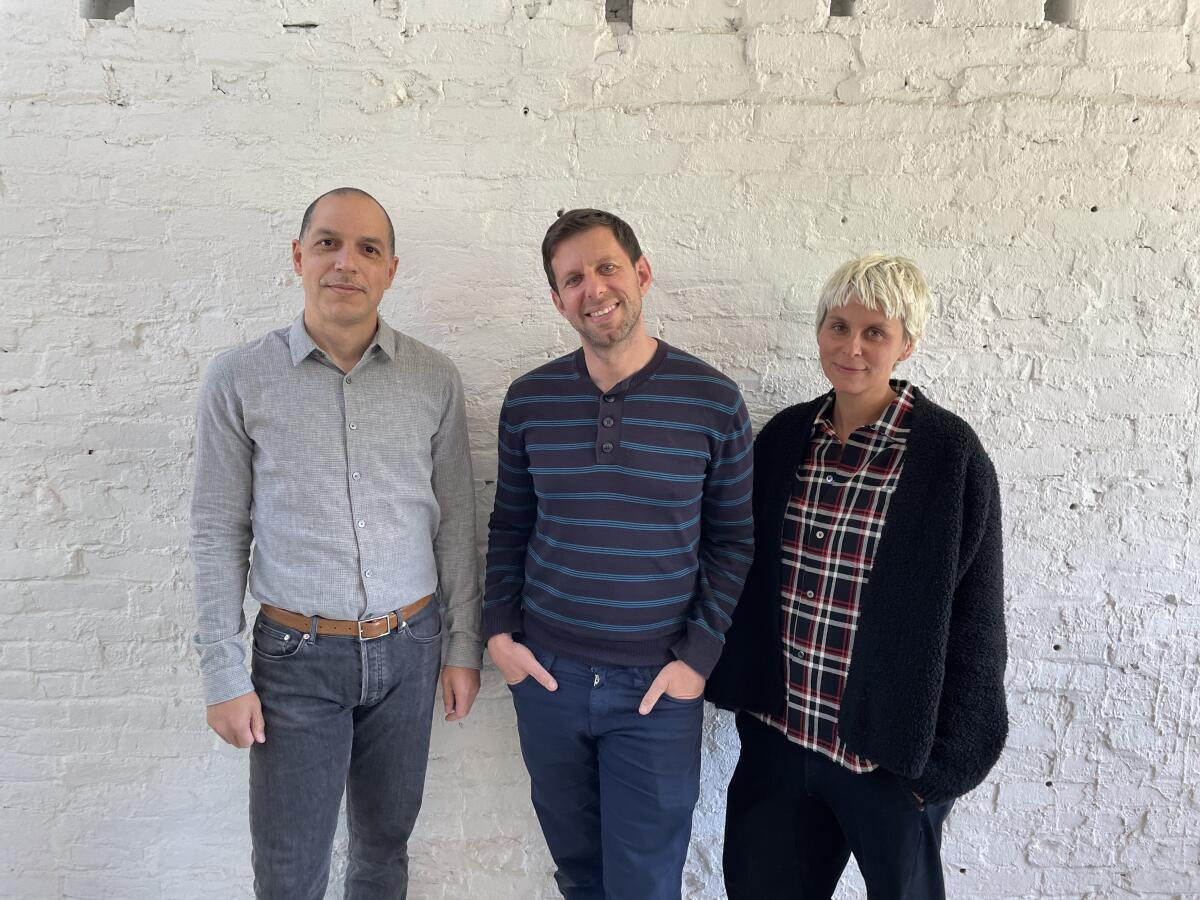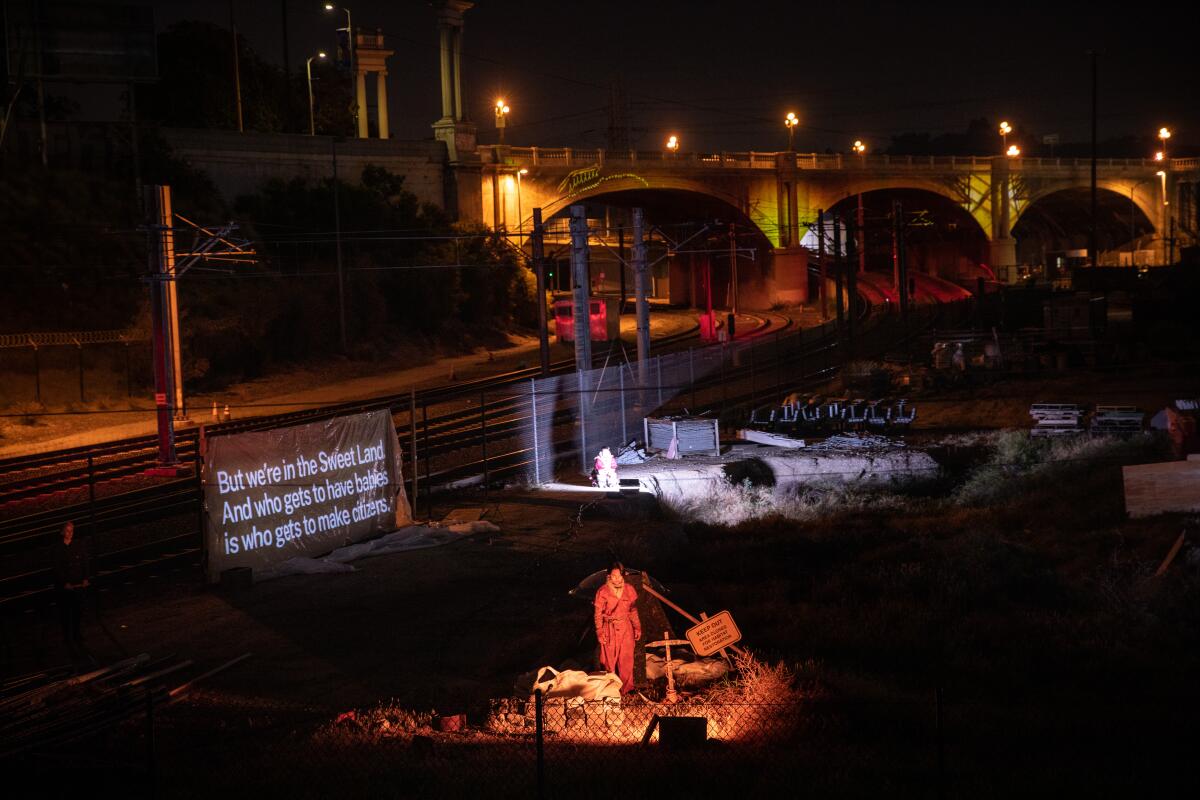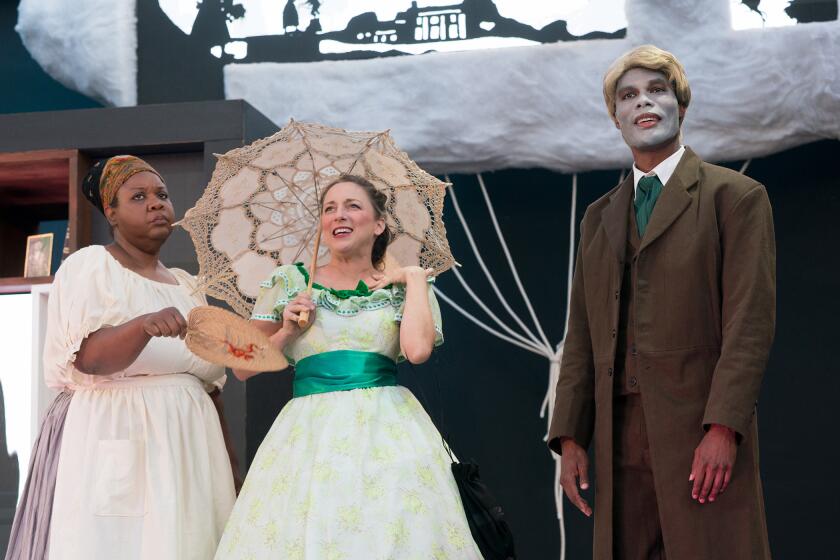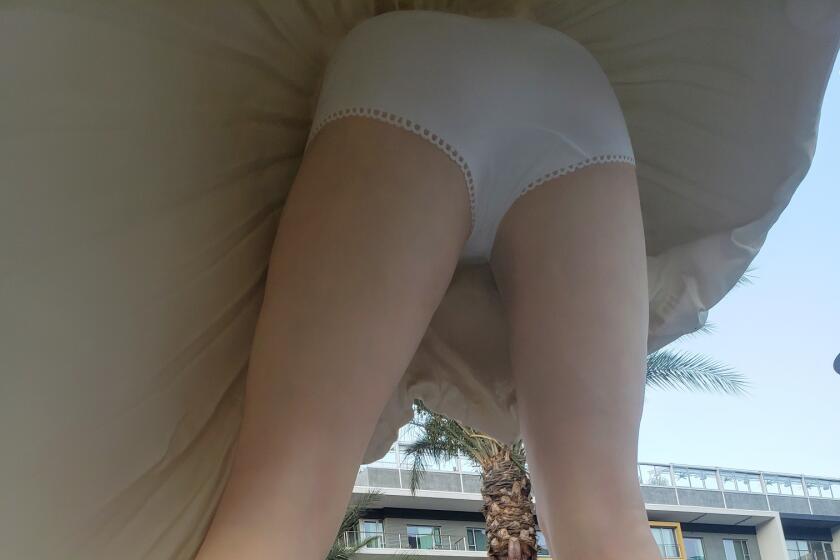The Industry, L.A.’s groundbreaking opera company, casts new leaders

The Industry, the acclaimed experimental company known for its operatic performances at bustling Union Station and inside moving vehicles in downtown L.A., among other places, isn’t losing its visionary leader, MacArthur fellow Yuval Sharon.
But the company is attempting to expand its voice and reach by adding sonic artist Ash Fure and interdisciplinary artist Malik Gaines as artistic directors, serving alongside Sharon.
The new artistic director cooperative is the result of a yearlong search launched by the Industry in conjunction with more than 50 community advisors, including artists working in performing and visual arts. During an open-call nomination process, the company received 157 nominations. These were winnowed down to 16 finalists, from which Fure and Gaines were chosen by a nine-person selection committee, including five Industry board members and Sharon.
In a Times interview Sharon called the exhaustive process the company’s most important pandemic project. Although many supporters seemed to expect the Industry to innovate its way through the global health crisis, Sharon said, he found it more productive to concentrate on how the company would emerge from the pandemic — how it could do better and be more inclusive and diverse.
“There’s no arts organization that could look at itself the same way after the year we’ve just had. We were taking a deep look at how we operate — not just with our projects, but on an organizational level,” Sharon said. “The multiplicity of voices is what makes the projects so exciting, so that should be how we are as an organization.”
The change also follows the September news of Sharon’s appointment as artistic director of Michigan Opera Theatre. His first project in Detroit was to stage a pandemic version of Richard Wagner’s biggest opera, “Götterdämmerung,” in a parking garage — a production that the creative team dubbed “Parkingdammerung.”
That kind of ambition is familiar to fans of the Industry, which was founded in 2010. Its most recent major production, “Sweet Land,” which shut down when COVID-19 spread in March 2020, tackled immigration, cultural appropriation, racial identity and colonialism. The show’s collaborators included co-director and costume designer Cannupa Hanska Luger, who grew up on the Standing Rock Sioux reservation in North Dakota; chamber music and noise composer Raven Chacon, a member of the Navajo Nation; Pulitzer Prize-winning composer and performance artist Du Yun, who immigrated from China; librettist Aja Couchois Duncan, a writer of Ojibwe, French and Scottish descent; and African American librettist and poet Douglas Kearney.

By expanding the company’s power structure to include Fure and Gaines, the Industry is taking that same ethos and applying it to a managerial level. The initial posts will last for three years, with Fure, Gaines and Sharon sharing co-equal responsibilities and credit. Artistic directors each will produce one small project and one large project during their tenure.
The idea, said Fure, is not to water down each vision through compromise, but rather to support one another through shared labor and resources.
“We aren’t seeking to move forward only through consensus, and we aren’t looking for a middle-ground melting pot of our diverse talents, perspectives and backgrounds,” Fure said. “We’re interested in mobilizing one another and helping one another’s vision come to life.”
Fure melds installation and performance through a sonic art practice that brings immersive listening experiences to unusual places — most recently a labyrinthian water tank in Berlin. Ten performers, a kinetic drum kit and 3D-printed megaphones made the experience come to life. This installation, called “Hive Rise,” will likely kick off the Industry’s season in the fall, although Fure has yet to settle on an L.A. venue.
Fure has a PhD in music composition from Harvard and is an associate professor of music at Dartmouth College. Fure was a 2016 finalist for the Pulitzer Prize in music.
“What is fascinating about the Industry is the way it centers ideas,” Fure said. “It’s such an unusual freedom that I feel privileged to step into. And Yuval has such an eye for scale; his first instinct is always yes.”
Branden Jacobs-Jenkins’ celebrated ‘An Octoroon’ has its Los Angeles premiere at the Fountain Theatre’s new outdoor stage.
Gaines lived and worked in L.A. for 20 years before moving to New York, where he is an associate professor of performance studies at New York University’s Tisch School of the Arts. In 2000 Gaines co-founded the musical performance art group My Barbarian. In October the Whitney Museum of American Art will feature a survey of the group’s work. Gaines is also the author of the book “Black Performance on the Outskirts of the Left” and writes about art and performance for outlets such as Art Journal and Artforum.
Gaines said the new Industry cooperative is about figuring out how to make the decision-making process more horizontal and learning how to listen while you’re talking.
“For me, opera is such a great place for that because it’s so gigantic. It’s about people, space and sound, and the Industry has shown already how you can detach that from conventions,” Gaines said, adding that he thinks the new team will be able to tackle a set of ethical, social and moral questions that differ from those normally addressed in opera.
Gaines is hoping to make his first Industry project some variation of his piece “Star Choir,” which features six singers and six instruments and takes on the perspectives of humans, stars and otherworldly organisms as the humans try to colonize a new planet after Earth’s decline.
The Industry’s 2021-22 season will be announced at a future date, and in the meantime the new cooperative is testing the boundaries it intends to push.
“I think we’re giddy,” Fure said. “And that’s not a sentiment I have felt in a good long while. It feels like exactly the right moment, and the exact right people.”
Misogyny is a root cause of homophobia, but a famously LGBTQ-friendly city has just raised a monument to it. The cognitive dissonance of #MeTooMarilyn
More to Read
The biggest entertainment stories
Get our big stories about Hollywood, film, television, music, arts, culture and more right in your inbox as soon as they publish.
You may occasionally receive promotional content from the Los Angeles Times.













